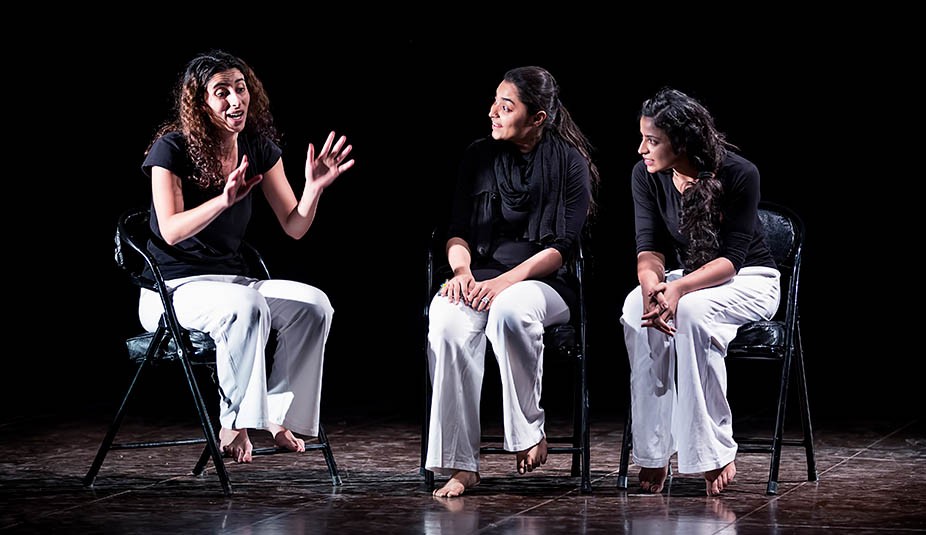
The National Academy of Performing Arts, the only theatre academy in Pakistan doing consistently solid work, must be provided an alternate location at the earliest

National Academy of Performing Arts (NAPA), it appears, is under threat. It has been ordered to leave the premises it has been housed in since its inception about thirteen years ago.
Since the independence of Pakistan in 1947, the Hindu community of Karachi had been struggling to acquire possession of the Hindu Gymkhana, which was known for having hosted the elite of the community since 1921. Petitioner Veenue Advani, President Hindu Gymkhana Association moved the court on the plea that the Hindu Gymkhana building is a historical site where apart from an auditorium, government offices have also been constructed.
The Sindh Provincial Culture and Tourism Department first issued a notification in 2008 to the NAPA management to vacate the Hindu Gymkhana, within whose premises NAPA is located, but the case has now been dragged in courts for almost a decade. Last week, the Supreme Court sought a report from the Sindh Government for shifting of National Academy of Performing Arts (NAPA) from Hindu Gymkhana building to another place. The Karachi Registry headed by Justice Gulzar Ahmed showed displeasure for not vacating the building of Hindu Gymkhana and asked why NAPA had not been shifted to some other place so far.
One is not holding a brief for the listed buildings and their dedicated purposes but one is for the academy of performing arts. The institution has been doing pretty well from the very beginning, especially in a country like Pakistan, where not enough emphasis is given to the arts in general and the performing arts in particular. If after more than sixty years, an institution had been set up why take steps that will begin to unravel it on its way to total ruin.
Ever since its inception NAPA has been assiduously pursuing its avowed aim. There had been no academy for the performing arts in the country though there were academies on every street corner of music, also of acting or films and recently of television production. Every musician poses as an ustad and sets up his own two penny shop in the name of a teaching institution of music, especially singing, and finds an excuse to spend his evenings with a purpose. Some stragglers and a few in earnest find their way to such sites and then realise that it is nothing more than a talk shop where the ustad either vents out his frustration at not being properly recognised, or rants about the current state of music with nothing left for proper imparting of practical knowledge.
National Academy of Performing Arts fashioning itself more on the lines of proper institutions in the West made it a point to not fall in the aforesaid category, and has been imparting serious training in the fields of various thespian activities as well as music and dance. With some of the most famous and no-nonsense-types in charge of running the institution, the initiative was bound to succeed, and it has. Actually, it charted a course and road-mapped it properly for other institutions to follow in the country but, in the last ten odd years, no notable emulation has taken place.
The various arts councils in the country have evening courses that are meant only for amateurs who want to dabble in the arts or cultivate a hobby. Nothing more purposeful has displaced it because the effort requires a fulltime schedule and a commitment with no caveats attached to it. The evening programmes, no matter how well conducted, can never replace an act that is purpose-built.
One problem with our society is the general perception that artistes are born and not made. This thought has prevailed more to bolster the laziness inherent in our culture. Much is done to justify this laziness and to prove a point, if a few by accident have reached exceptional levels in their expression. Much of what we call the artistic expression has to be a skill that has to be learnt and a craft that has to be acquired. Beyond it lies the real challenge where greatness beckons. Without a base, it is more difficult to build a superstructure.
NAPA has not only been imparting training on the various aspects of the performing arts, theatre in particular, music and dance in general, it also in its tow has become a nucleus for theatre activity in the country. It has successfully been staging national theatre festivals and been able to bring forth talent that lies embedded for want of proper exposure. The theatre festivals as they always do, pool talent, resources and ideas and germinate more originality regarding the performing arts in the country.
It will be a pity that such hard work will be wasted with NAPA losing its location, which could result in curbing its momentum. Whatever has been achieved not only by doing work but by disproving certain of the settled ideas in this society’s attitude has been the true achievement of NAPA. And we all know that to learn is easier than to unlearn. NAPA took the bold step making inroads in the citadel of half-truths that stand for absolute truths in this society.
Agreed that Hindu Gymkhana is a designated building and it is supposed to be used for the purpose that it was built, but then since it has not, the next best option would be that it should be housing the academy of performing arts. Since NAPA is affiliated to the Higher Education Commission it is the responsibility of the governments -- federal and provincial -- to provide an alternate location before it is too late.